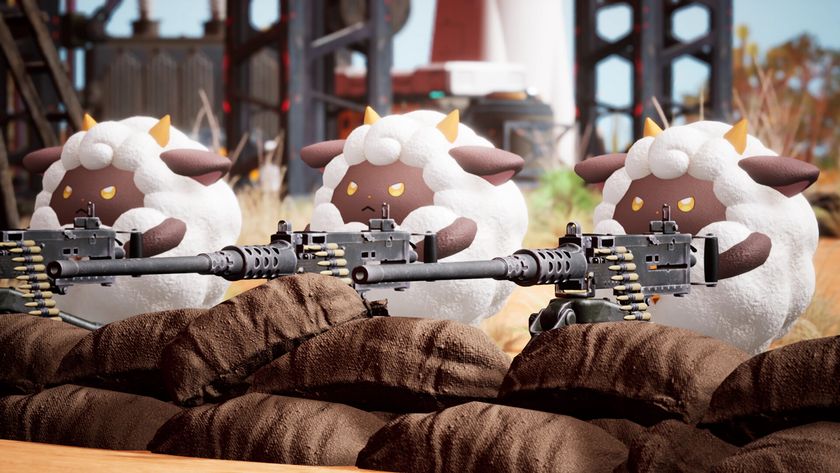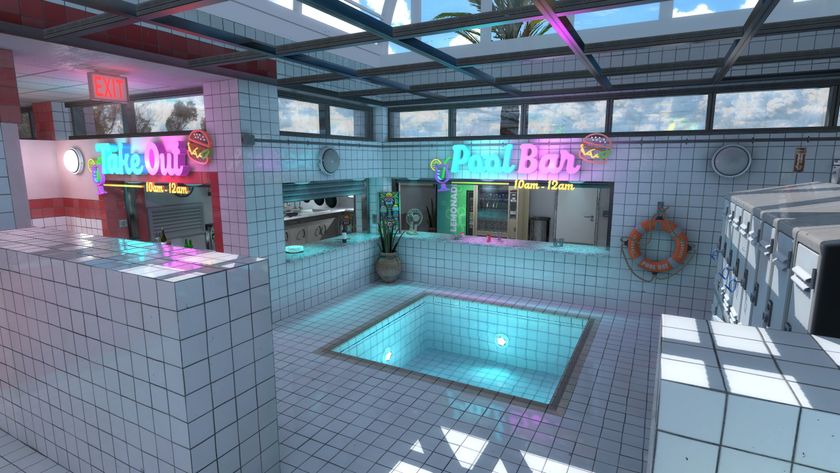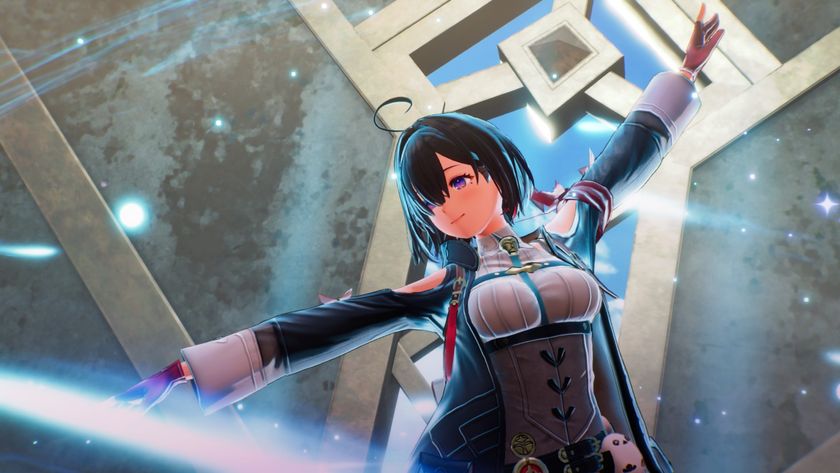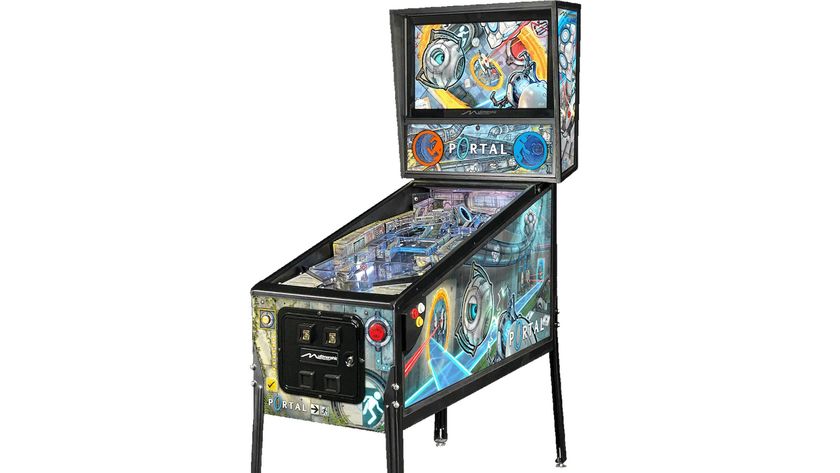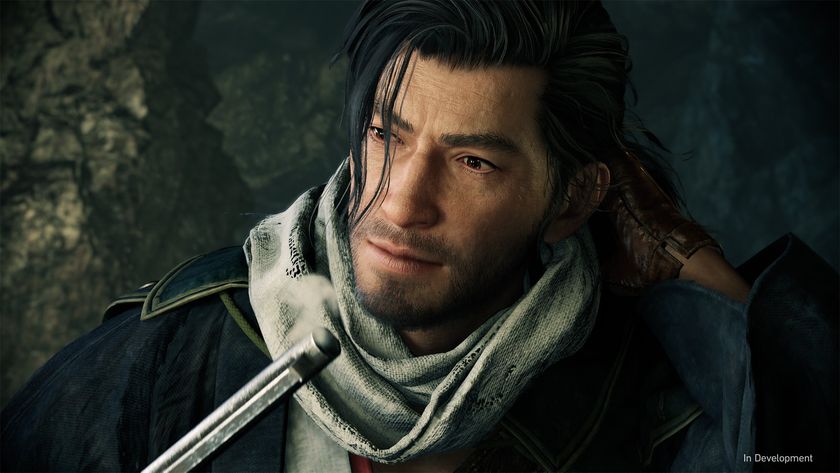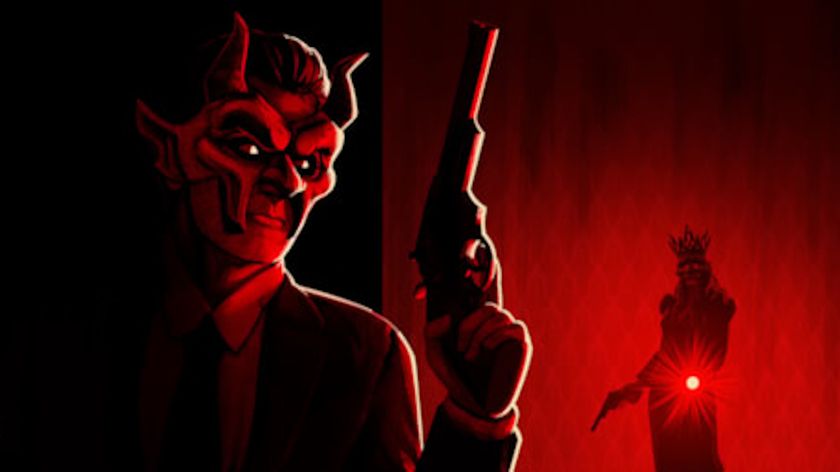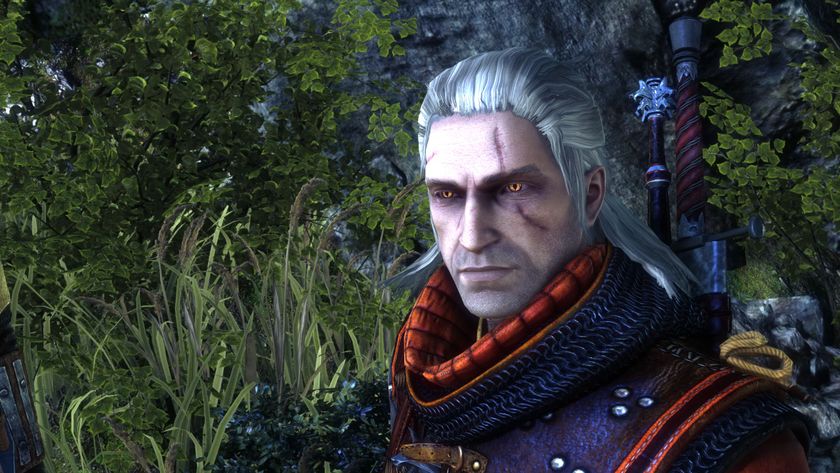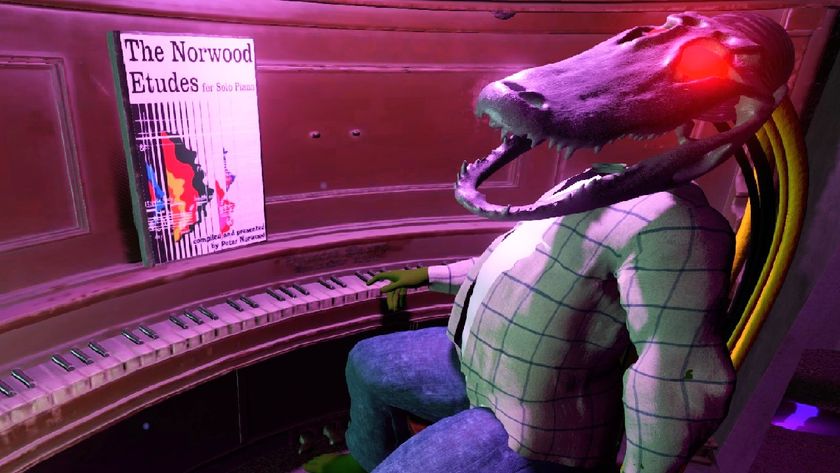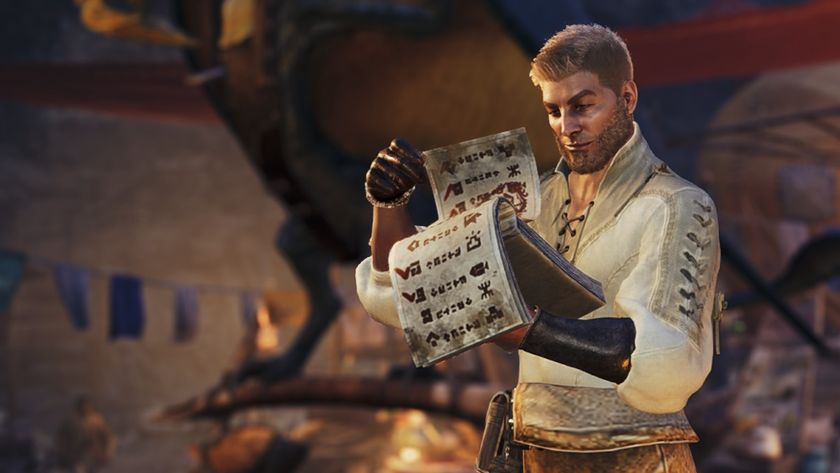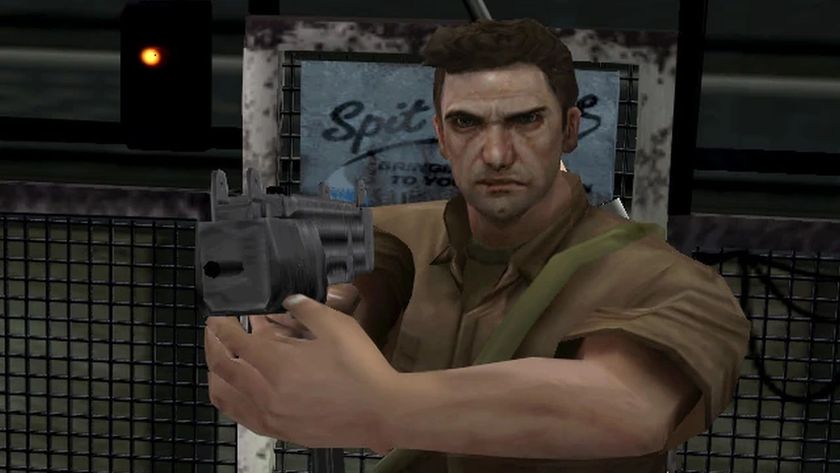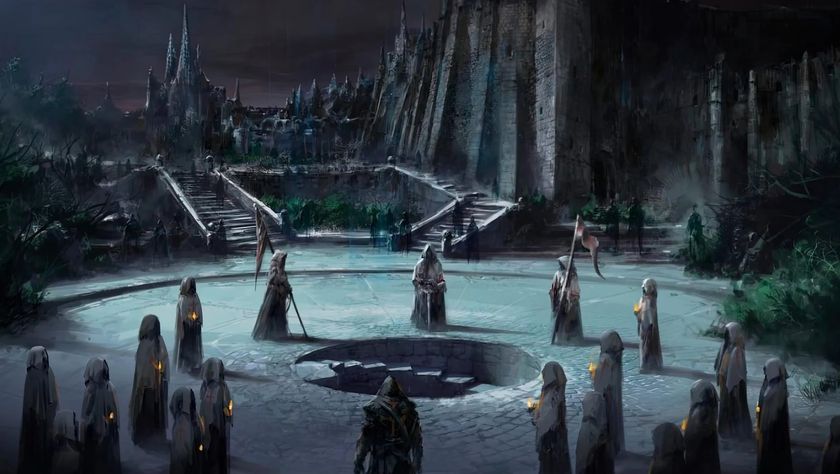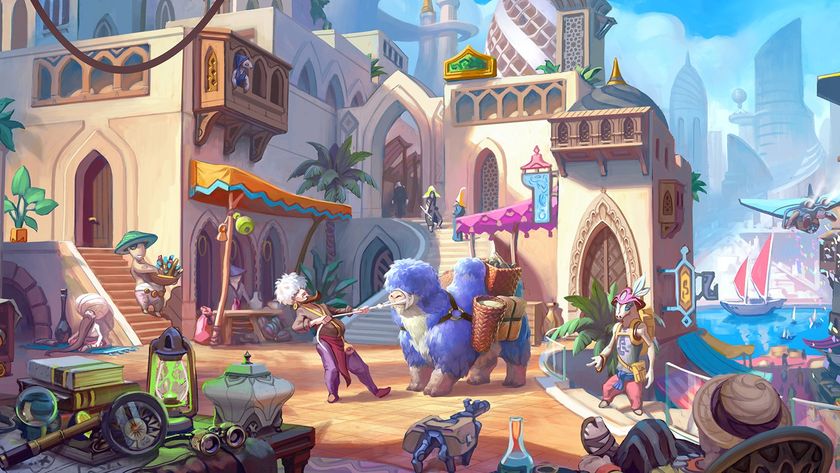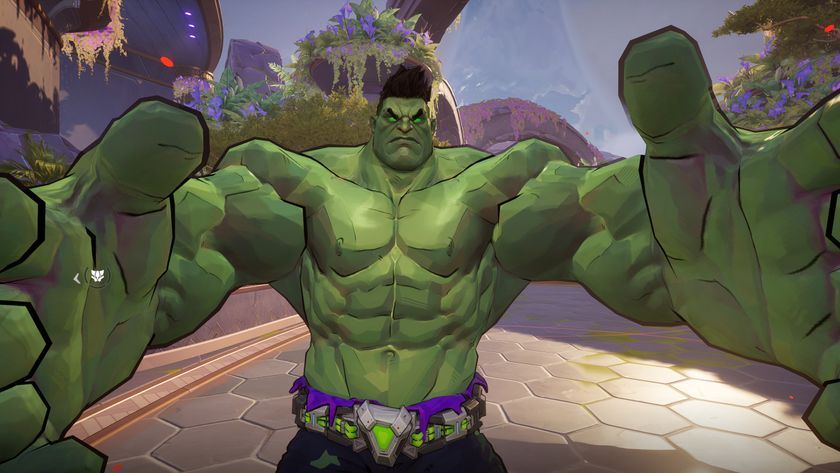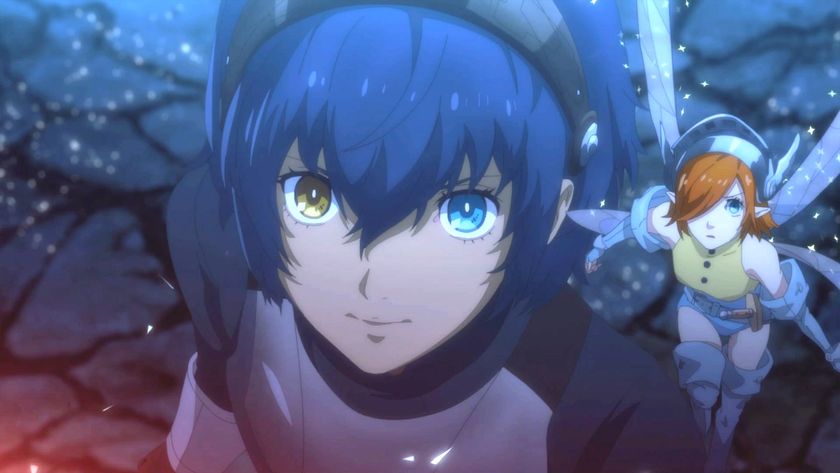The 50 most important PC games of all time
They changed how we make games, how we play games, and they changed us.
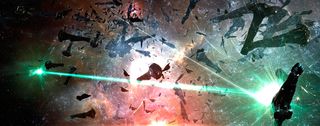
EVE Online
Released: May 2003 | Developer: CCP Games
Why it's important: A whole universe in and of itself, where players, rather than the developers, call the shots. No other MMO has managed to pull it off, from the single-shard where everybody plays, to the depth of tactics and bastardry that goes into high level play.
Dozens of MMOs have mimicked World of Warcraft, and some have even succeeded. But EVE Online is peerless. Its importance stands in isolation because no other developer has even attempted to match what it does, let alone tried to surpass it. EVE has spawned conventions, books, spin-offs and hundreds of fascinating articles, but it is notable purely on its own terms—singular in both design and impact.
It's less an MMO than a storytelling experiment conducted between CCP and its fanbase. A shared universe of complex political and economic factors; where intrigue and betrayal can spark seismic shifts in the power structure of its major players. Aside from the regularly-updated systems and in-game actions, EVE is an MMO about people, to the point that its most famous player—The Mittani—isn't technically a player. But while he doesn't log into the client and play the game, he does play the game, mobilising his forces in a way that is entirely in keeping with the spirit of the unique, anything-goes possibility space that CCP has created. — Phil Savage

Second Life
Released: June 2003 | Developer: Linden Lab
Why it's important: Finally, the chance to step into the Metaverse promised by novels like Snow Crash. And oh, the wonders to be seen. Second Life pioneered the idea of a virtual world built by its users, and the freedom to build anything from a fully interactive Neverland to a functional virtual university. It never caught on, but the user generated content revolution did.
Philip Rosedale, founder of Linden Lab, had presumably read Neal Stephenson's Snow Crash when he first conceived of Second Life—a "metaverse," or a 3D virtual space, originally intended to be accessed through a VR headset and glove. (Today Second Life can be accessed through the Oculus Rift, but it's still cumbersome.)
The biggest gaming news, reviews and hardware deals
Keep up to date with the most important stories and the best deals, as picked by the PC Gamer team.
I've spent a lot of time in Second Life. Mostly I've cosplayed as my own real-life self there (although I've also spent time disguised as She-Ra and Ultraman). Even now I'm not sure whether my choice of online identity is because I'm confident enough to "play myself" online or, alternatively, because I'm too anxious to play at being someone else.
"I think the most important aspect of Second Life is just how open-ended it is," says Janine Hawkins, a games writer who moonlights as a sometimes-columnist at New World Notes. "It's sort of a gateway into finding things out about yourself and exploring that in a safe and controlled setting."
Once, I accidentally teleported my Tardis into a random private home's secret sex dungeon.
In Second Life, I have hoverboarded through a skate park, played an RPG set in a Mad Max apocalyptic wasteland, and visited the Palace of Versailles. I have attended a Raph Koster talk at Georgia Tech. I've danced to '40s music, visited a haunted house, swum through an undersea shipwreck looking for treasure. Once, I accidentally teleported my Tardis into a random private home's secret sex dungeon.
"I think Second Life is so important because it supports a diversity of people in as much anonymity as they prefer," a user named Rosemary Galbraith explains to me, "while still being people-driven."
Almost every object and location in Second Life has been created, not by Linden Lab itself, but by other users. For a long time, Galbraith created and sold items in Second Life, as well—enough to make an actual, real-life living.
"Working in Second Life was the Wild West," she says, "and represented freedom to me." She goes on to explain: "I'm not creative in any ambitious way, but not being myself is super freeing. I could launch huge projects and feel completely comfortable."
"I was shocked to earn a living there," Galbraith says. — Jenn Frank
Some of the most fun I've ever had online happened in Second Life. This vast, lawless, completely user-generated 3D world was so impossibly big, you'd see something different every time you logged in. From islands where hardcore role-players would pretend to be living in medieval times and recreations of London and Paris, to cyberpunk nightclubs and weird sex palaces full of the rudest things you've ever seen. It really does feel like another world.
Admittedly, I spent most of my time causing mischief. My friends and I took particular childish glee in finding these super serious role-playing places, then storming them dressed as Darth Vader and riding motorcycles shaped like dicks. Hey, we were young. We also found a gun that would trap someone in a cage and fire them miles into the air, which made a lot of people quite upset. But the fact you could do this sort of thing is what makes Second Life so special.
But it was also a cool place to just hang out. I met some genuinely nice people there when I wasn't being a hideous little troll. Sometimes it was nice to find a public space and just wander around, looking at all the weird avatars and listening in on people's conversations. It's not quite the stuff of cyberpunk fiction, and a bit too glitchy, weird, and rubbish to really become mainstream (despite an appearance on The Office), but I have a special place in my heart for Second Life. — Andy Kelly

Half-Life 2
Released: November 2004 | Developer: Valve
Why it's important: Even if we discount all its innovations, like the physics and character animation and unbroken adventuring, Half-Life 2 largely saved PC gaming. It was the carrot Valve used to establish Steam (which was incredibly unpopular) and usher in a digital distribution model that didn’t completely suck, unlike all those that came before it.
I'm not sure I realized, prior to Half-Life 2, that a game could be more than one type of game. It's easy to take for granted in an era of open world amusement parks, where combat, stealth, racing, and maybe even hunting and flying are all fun little activities available for your entertainment. But what stunned me in Half-Life 2 was how drastically the game would shift from one segment to the next. One moment I'm exploring a run-down European city under alien occupation, the next I'm racing a hydrofoil through canals and dodging helicopter attacks.
Then I'm being handed a gravity gun and packed off to a place called Ravenholm, where the action movie I'd been playing gives way to Romero-esque horror. I can still see hordes of burning zombies shuffling towards me, and feel the panic rising as I launch a saw blade with my gravity gun, miss, and realize I'm suddenly defenseless. Then, next thing I know, I'm taking part in a violent prison break, or learning how to tame monsters, or fighting a fully-fledged war in the streets with a small army of fellow resistance fighters at my side.
Half-Life 2 always had a new trick up its sleeve, another identity it could assume. It understood that being an action hero isn't just about running around with guns, shooting everything you encounter. It's about a sense of adventure, a sense of omnicompetence. When you're Gordon Freeman, you're always the right man for the job. And that job is always going to be awesome and unexpected. — Rob Zacny
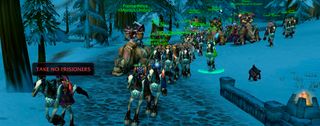
World of Warcraft
Released: November 2004 | Developer: Blizzard Entertainment
Why it's important: The MMO that defined a generation. Much of it was polishing what came before, but Blizzard’s understanding of single-player questing as an important part of the package, and expansion after expansion of innovative ideas and twists on the formula, helped turn it into the social club of the 2000s, and still one of the most important games alive on PC today.
I’ve been playing WoW for over ten years and there are few things that can hold my interest for that long. My husband and I were a team from day one, levelling up together, learning the tricks together, joining guilds and watching them spin apart under raid pressures. We’ve known some members of our guild longer than real-life friends. This social glue is one of the significant aspects of staying connected to the game for so long.
Some people don’t like the look of WoW or complain about it being too cartoony. Perhaps my background as an animation writer gave me a different perspective, but I loved the look of the world right off. I delighted in watching the world cycle from day to night and back. I loved the immersion of it, the vast geography to explore, the surprises to discover, the colors and shapes. I loved that my female avatar had the same stats and powers as the males. I tried out every race and class, experimented, discarded, adopted, and learned about myself in the process.
No, it isn’t a perfect game. The gear grind is tedious and those of us with limited time to play are severely handicapped. One thing about Blizzard, though—they keep trying new things. They also learn and experiment and move forward. I suppose one of these days I’ll have had enough, finally get bored, and leave Azeroth behind. But not yet. Not just yet. Now pardon me, I have some dailies to do. — Christy Marx

Dwarf Fortress
Released: August 2006 | Developer: Bay 12 Games
Why it's important: Proof that on PC there’s no such thing as ‘too hardcore’. NASA has less complicated simulations than this, a game so ludicrously complicated that cats splashed with booze can be poisoned when they try to lick themselves clean.
I played Dwarf Fortress for four months, and I understand maybe, maybe, one percent of it. It strains the mind that this game was made (and is still being made) by only two brothers, working steadily for close to a decade to render the complexity of existence as lines of eternal code and ASCII. Dwarf Fortress takes the promise of adventure and fantasy made by Dungeons & Dragons CRPGs—of being in a wholly different world, your imagination augmenting the stats and dice rolls in front of you—and brings to bear an unimaginably complex array of systems working together to make that world real.
Characters rendered by its code have hopes, dreams and personalities.The world you generate has centuries of recorded history. And you can adventure through that world, with your eyes (or a nice fan-made tileset mod) turning those ASCII symbols into fortresses and forests and dwarves and bastard elves. And that's not even the mode Dwarf Fortress is really known for. Adventure is an alternative to the Fortress mode in which you build a society through a simulation so impossibly deep that there's always another system to learn and master.
There's no game that's as ambitious or, seemingly, humble. It's creators subsist on community donations and deepen their simulation year after year with little fanfare and no end in sight. It's hard to imagine another PC game ever matching, much less exceeding, the complexity of Slaves to Armok: God of Blood Chapter II: Dwarf Fortress. — Wes Fenlon

Wes has been covering games and hardware for more than 10 years, first at tech sites like The Wirecutter and Tested before joining the PC Gamer team in 2014. Wes plays a little bit of everything, but he'll always jump at the chance to cover emulation and Japanese games.
When he's not obsessively optimizing and re-optimizing a tangle of conveyor belts in Satisfactory (it's really becoming a problem), he's probably playing a 20-year-old Final Fantasy or some opaque ASCII roguelike. With a focus on writing and editing features, he seeks out personal stories and in-depth histories from the corners of PC gaming and its niche communities. 50% pizza by volume (deep dish, to be specific).
